【新唐人2012年3月10日訊】美國日前宣佈將調派更多軍力前往亞太地區,其中包括一艘航空母艦。美國也同時加緊了與亞太國家的軍事聯繫,其中包括澳大利亞、菲律賓和新加坡等。
美國國防部副部長阿士頓•卡特3月8號表示,在未來幾年,美國派駐太平洋上的艦艇佔海軍艦艇總數的比例,將從現在的52%增加到60%,航空母艦也將從5艘增加到6艘,海軍和海軍陸戰隊也在增強在亞太地區的部署。
《路透社》分析,美國是為了應對中國日益增強的軍力,保持亞太地區的和平穩定。
「簡氏防務諮詢機構」上個月發表的研究報告指出,中國的國防開支2015年將達到2380億美元,超過亞太地區所有國家總和。這讓所有周邊國家感到了不安。
旅美學者程曉農:「在整個亞太地區逐漸形成了一種共識,中國現在逐漸成為亞太很多國家擔心的一個威脅。現在很多國家從新考慮他們的國防安全的時候,實際上是以中國為潛在的挑戰者。這也是為甚麼這些國家歡迎美國在亞洲地區增強軍力,以保護他們的安全。那麼中國實際上也不斷的擺出各種姿態表明,中國確實想要擴大它在亞太地區對周邊國家的壓力。」
程曉農表示,中國在擴張自己國家力量的同時,使得亞太地區的區域安全面臨著風險,美國的舉動是針對這種風險在承擔它一向承擔的國際義務。
俄羅斯媒體認為,中國軍力的增長正在改變地區力量平衡,但中國真正的軍費開支數字外界很難知道。
8號,日本自衛隊宣佈參加美國與菲律賓下個月在南海舉行的「肩併肩」聯合軍事演習。有分析指出,「肩併肩」軍事演習是美軍以亞太為中心部署的一部分,以縮小對中國的包圍圈。NHK分析說:「看來此舉的目地,是牽制加強軍備、圖謀海洋權益的中共。」
美國「杜克大學」中國研究中心主任劉康教授:「美國與菲律賓這些東南亞國家的軍演,一是要從新撿回他在冷戰時期構建的軍事戰略同盟,第二他是要在中美大國博弈之間強化他對這些中國周邊小國的關係。他的做法根本上來說是對中國敵視的一種行為。」
劉康認為,中國在全球擴張舉動是在最近十年內開始的。從二戰到本世紀初,美國一直是亞洲的主導,現在美國要重回亞洲,想確立它在亞洲的領導權,建立軍事同盟就是其中一個手段。
美國國會最近的一份報告說,中國的「網路戰」將對美國軍方產生「真正的威脅」,它的能力已經足夠對美國執行任務的軍方構成危險。報告預測,在未來與美軍發生的潛在衝突中,解放軍很可能會襲擊美軍的交通和後勤網路,然後發動攻擊,延緩或破壞美軍的作戰能力。
不過,中共雖然在軍事上開始展現威脅,但它在國內面臨的困難可能遠比外界想像的要大得多。
全國人大會議公布新一年度的財政報告,其中用於維穩的公共安全開支預算高達7018億元人民幣,比去年同期增加12.3%,甚至比今年增加11.5%的國防預算6702億元更多,而這顯示︰國內嚴峻的形勢更甚於國際。
新唐人記者常春、宋風、後製採訪報導。
US send more military power to Asia-Pacific region
The U.S. recently announced that it will deploy more military
power to the Asia-Pacific region, including an aircraft carrier.
The U.S. also stepped up military ties with the Asia-Pacific
countries, including Australia, the Philippines, Singapore etc.
March 8th, U.S. Deputy Secretary of Defense Ashi Dayton
Carter said that in the next few years,
the proportion of the warships that the United States stations
in the Pacific will increase from the current 52% to 60%.
Aircraft carrier will also increase from 5 to 6. Navy and Marine
Corps will also enhance deployment in the Asia-Pacific region.
Reuters analyzed the purpose of the US action is to respond to
China's growing military power as well as maintaining peace and stability in the Asia-Pacific region.
A report issued by "Jane's Defense advisory body" last month
pointed out that China's defense spending will reach $ 238 billion in 2015,
more than the sum of all countries in the Asia-Pacific region.
This makes all the neighboring countries feel uneasy.
Cheng Xiaonong, scholar in US, said:
"Amongst all the Asia-Pacific regions,
a consensus gradually formed that China is now becoming
a threat which makes many Asia-Pacific countries worry.
Many countries are now reconsidering their national defense
and security. In fact, they regard China as a potential challenger.
This is why these countries welcome the U.S. military buildup
in Asia to protect their safety.
China has actually also been showing various attitudes that it is
really increasing pressure on neighboring Asia-Pacific region."
Cheng Xiaonong said that while China expands its strength,
It makes regional security in the Asia-Pacific region uncertain.
The U.S. move is responding to this risk and taking the
international obligations that it has always assumed.
Russian media said that the growth of China's military power
is changing the regional balance.
But the real figure of China's military spending budget is
difficult for the outside world to know.
On March 8th, the Japanese Self-Defense Forces announced its
participation in the "shoulder to shoulder" joint military exercises
held by the United States and the Philippines in the
South China Sea next month.
Some analysts pointed out that the "shoulder to shoulder"
military exercise is part of
the U.S. deployment based on the Asia-Pacific as
the center for reducing the encirclement by China.
"NHK Analysis said:" It seems this purpose is to contain Chinese
Communist Party (CCP) which is strengthening arms and attempting to take over maritime rights and interests."
Professor Liu Kang, director of China Study Center at Duke
University, said: "The American military exercise with the
Philippines and other Southeast Asian countries is to revive its
military strategic alliance originally built during the Cold War;
The second purpose is to strengthen the relationship with
China's neighboring countries
during the game playing of the two big countries, China and America.
Its approach is fundamentally a hostile act to China."
Liu Kang believes that China's global expansion move
began in the last decade.
From World War II to the beginning of this century,
the U.S. has been dominant in Asia.
Now the United States wants to return to Asia and
establish its leadership in Asia. To establish military alliances is one of the means.
A recent report of the U.S. Congress said China's "Internet war"
will be a "real threat" to the U.S. military.
Its capacity is sufficient to pose a danger to the U.S. military
tasks. The report predicts that in future potential conflicts with the U.S. military,
the PLA is likely to attack U.S. military transport and logistics
network, and then launch an offensive, delaying or destroying U.S. military's combat capability.
However, although CCP is starting to show military threats the
difficulties it faces at home may be much worse than imagined.
The National People's Congress announced a new annual
financial report.
It shows the public safety expenditure budget for maintaining
the stability is up to 701.8 billion yuan, with an increase of 12.3 percent over the same period last year.
It even surpasses the defense budget, which is 670.2 billion
and with an increase of 11.5 percent this year.
This shows that the grim situation at home is even worse
than that in the international environment.
看下一集
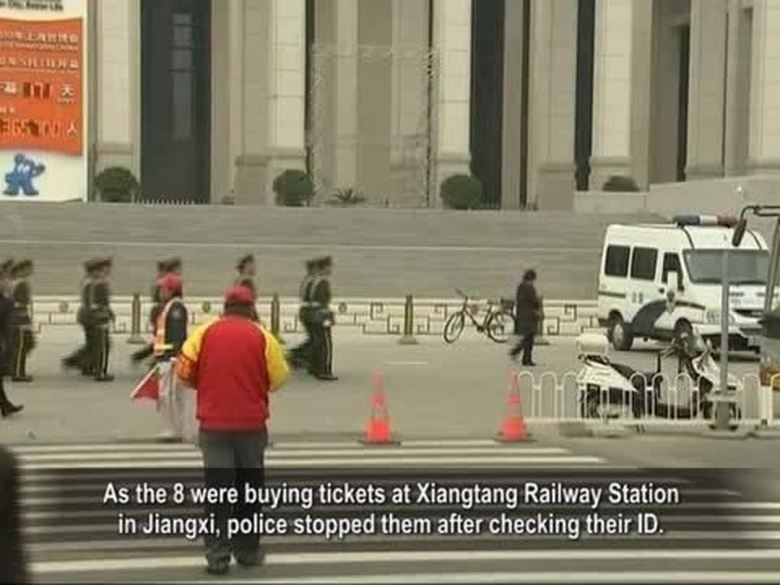
【禁聞】阻止訪民進京 實名制露真容

【禁聞】陞官須經黨校 專家:共產奴化怪胎

【禁聞】茅臺曝國家機密 編號有玄機
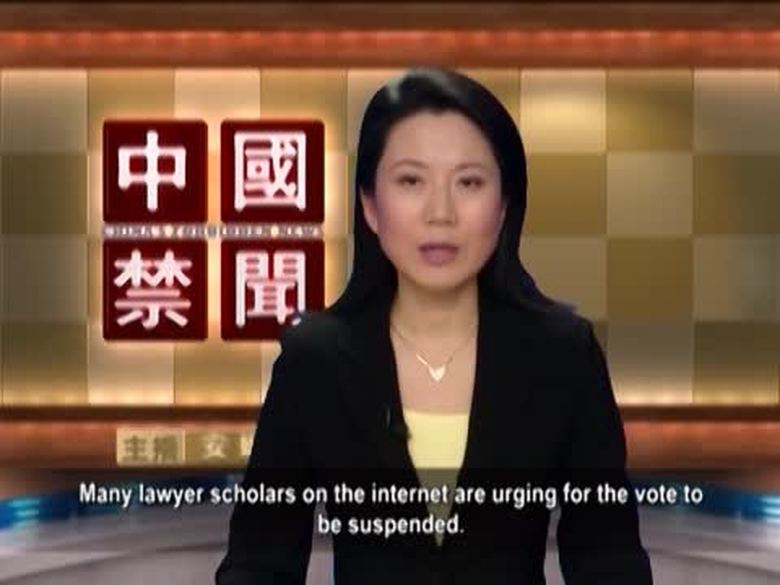
【禁聞】大陸法律界指人大修法程序違法
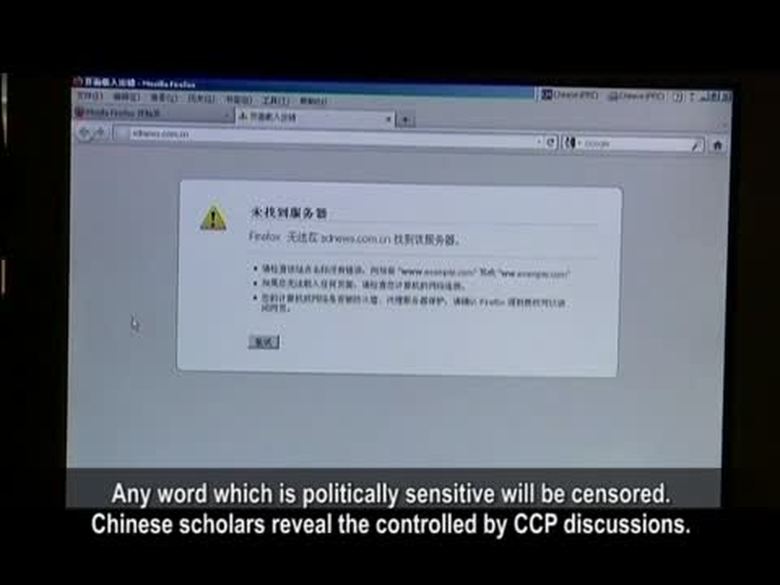
【禁聞】美國學者研究中國微博敏感詞

【禁聞】衛生部消毒?中國器官移植來源成疑
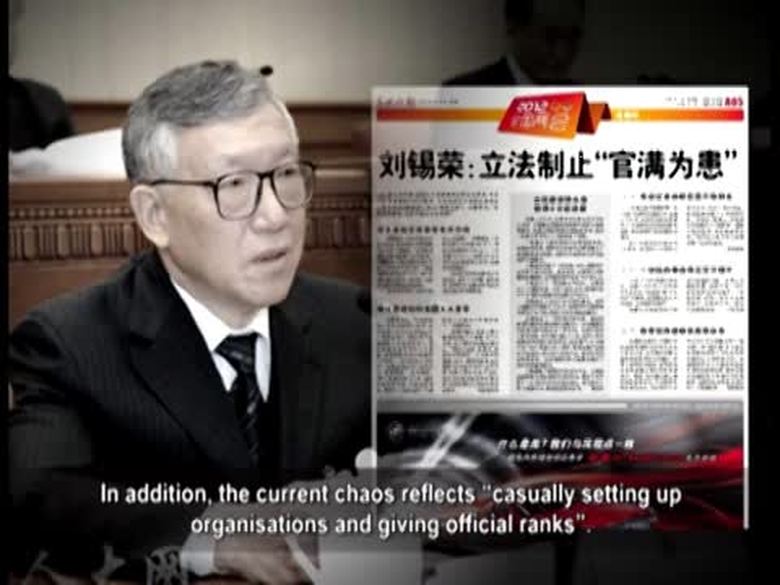
【禁聞】中共官滿為患 代表倡立法管控
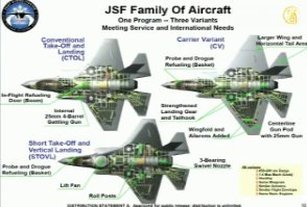
【禁聞】中共竊西方最尖端戰機機密
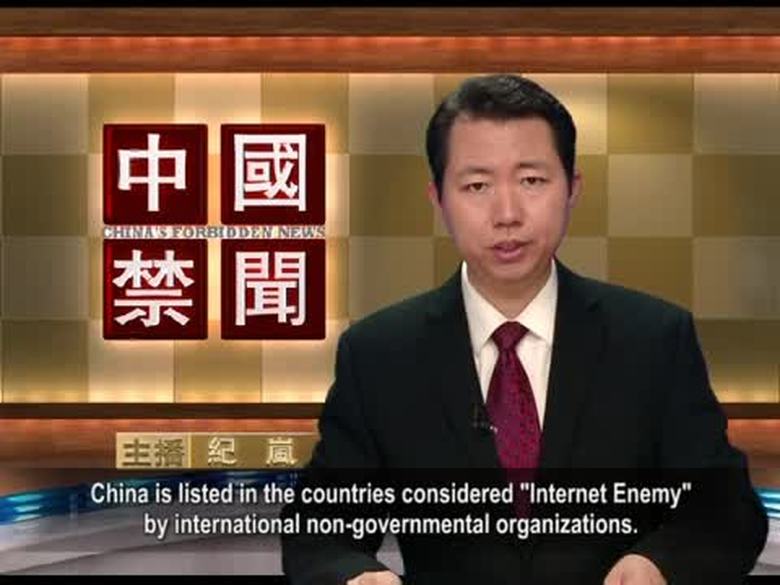
【禁聞】中國被列入「互聯網之敵」名單
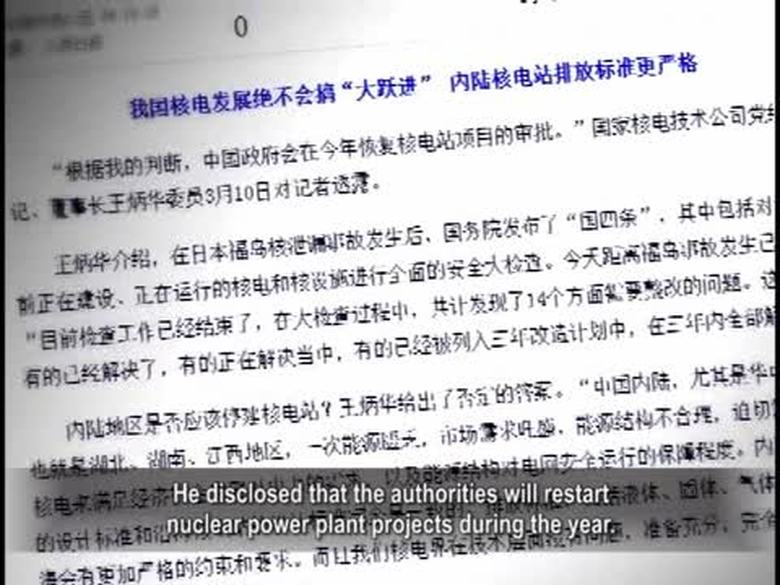
【禁聞】福島核洩漏週年 大陸擬續推核電

【禁聞】專家評:維穩向前進 司法向後退
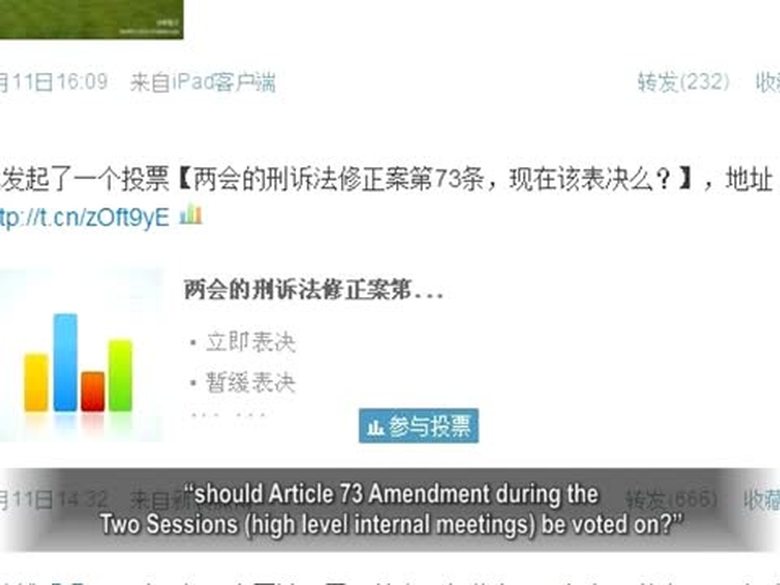
【禁聞】刑訴法73條 黑社會要合法化?
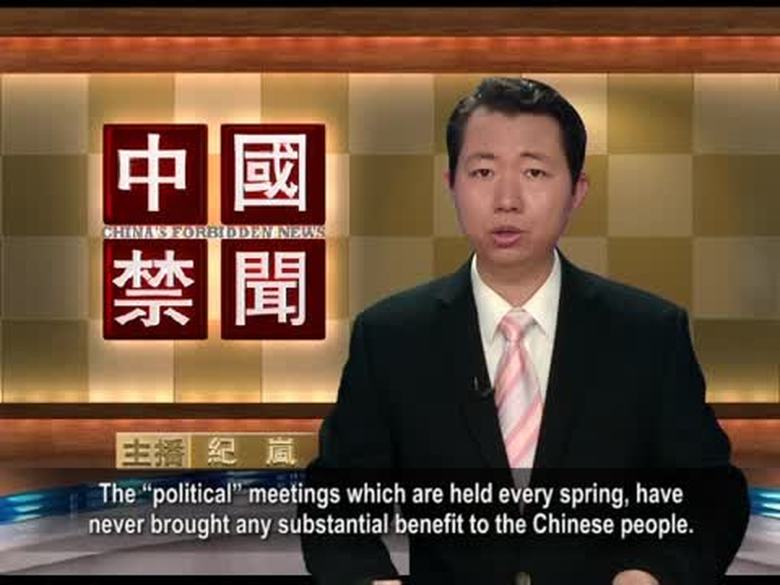
【禁聞】作家:兩會是世界上最成功的失敗
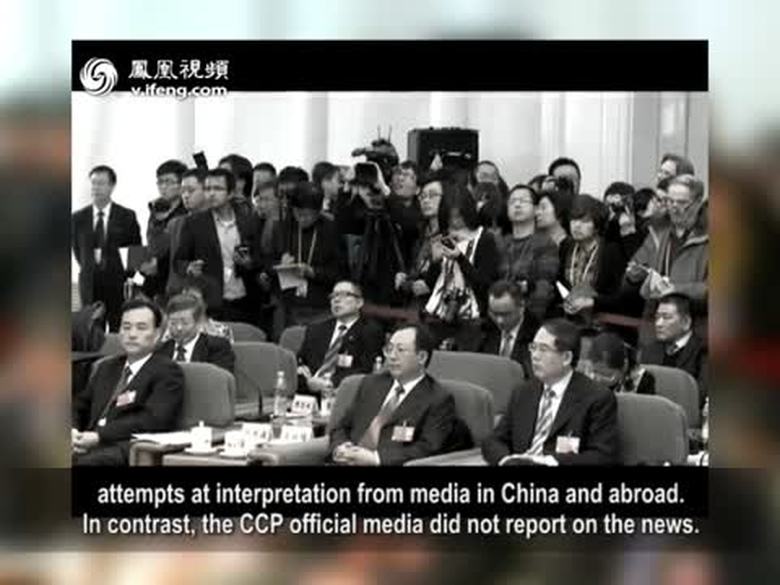
【禁聞】薄自說自話 官媒封殺 中央不認可?
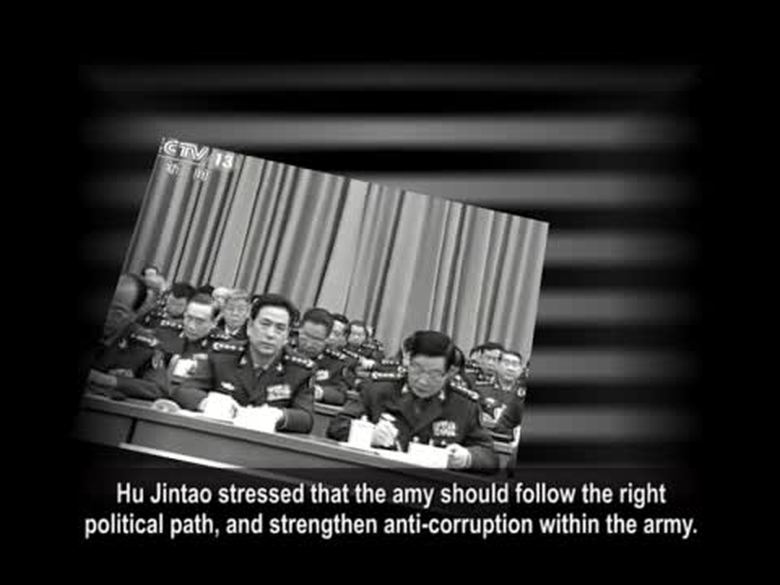
【禁聞】胡錦濤強調以黨領軍 貪腐集團角力

【禁聞論壇】誰騙誰?








